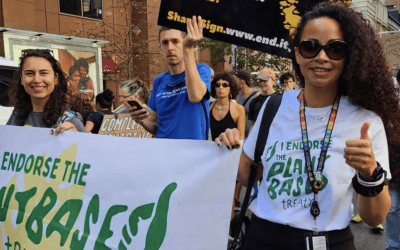Blog
6 Important Calls To Action From The Safe And Just Report – Part One
April 6, 2025
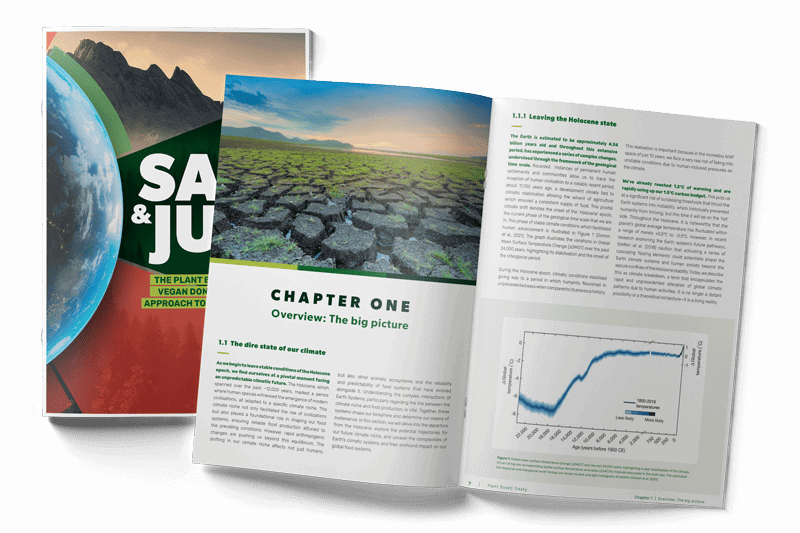
The Plant Based Treaty’s Safe And Just Report is a vegan donut economics approach to the food system and provides information, forward-thinking policies, and resources so we can safely live within our planetary boundaries. The report outlines 12 crucial calls to action, making it easy for individuals, communities, businesses, and policymakers to share information. Hopefully some of these ideas inspire you to speak out, raise awareness, and make a positive change for the earth, the creatures living here, and your health.
1. No land Use Change
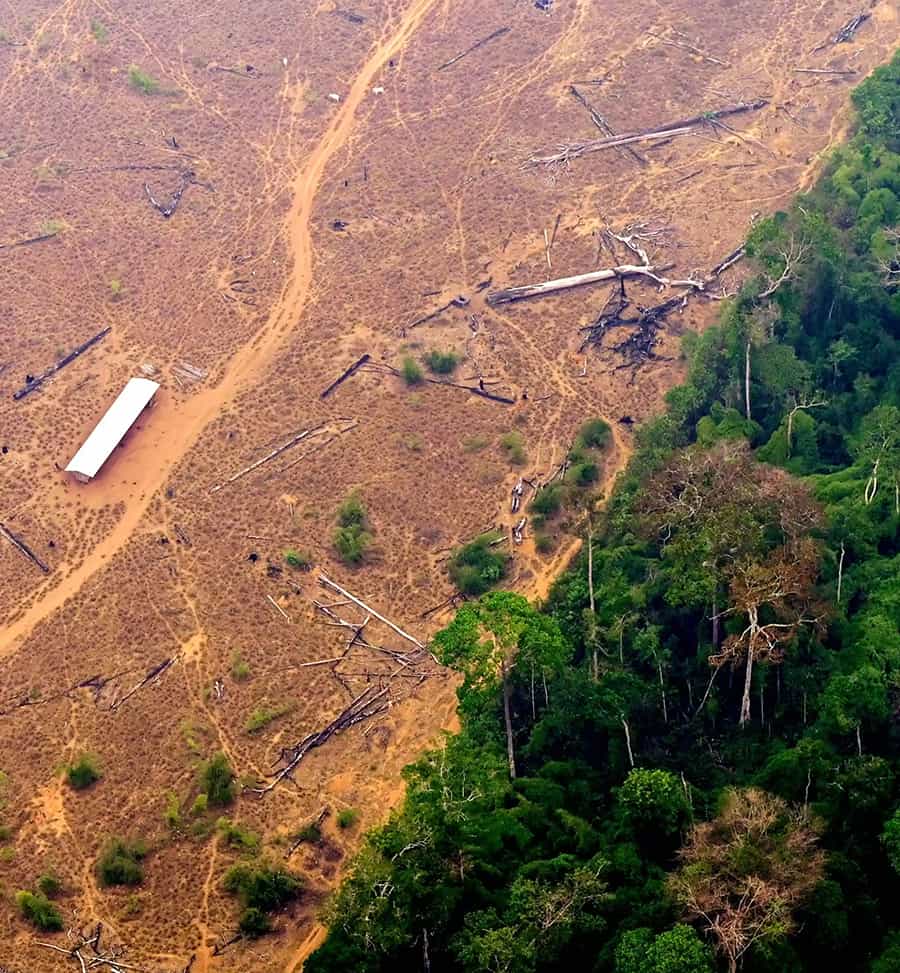
Deforestation in the Amazon is one of many examples of land use change for animal agriculture.
In addition to being crucial to the Safe and Just report, no land use change is an important part of the Plant Based Treaty’s core principles. Demand two of the treaty is to relinquish and stop environmental issues from increasing. This means not changing over land for animal agriculture, and not building new animal farms, slaughterhouses, or aquaculture farms. The report explains that transitioning to a plant-based food system could not only halt deforestation but create opportunities to rewild three-quarters of agricultural land. One of the biggest issues threatening biodiversity is the expansion of animal agriculture, and of the 28,000 species evaluated to be threatened with extinction on the IUCN Red List, agriculture is listed as a threat for 24,000 of them, the report explains. To avoid the extinction of large numbers of species and the destruction of our ecosystem, we must keep it intact and restore additional land.
2. Indigenous Protection
The constant demand for meat and dairy from animals is increasing agricultural expansion into old growth forests and causing destruction to our earth and land defenders.
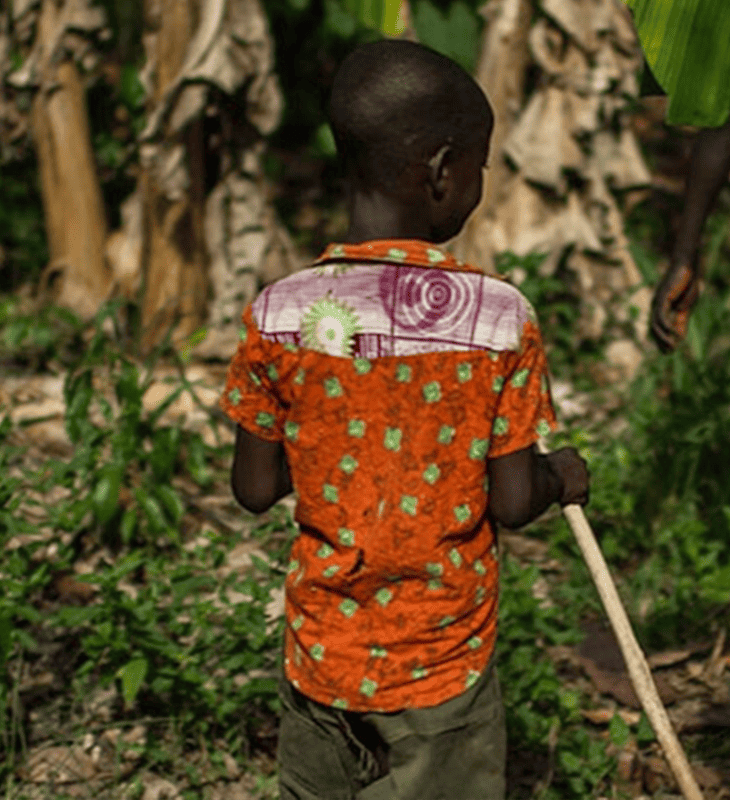
Pressure on Indigenous land keeps increasing. The Indigenous people don’t have the strength to resist the farmers who are coming in and displacing them from their lands.
“Although representing just 5 per cent of the world’s population, Indigenous Peoples safeguard 80 per cent of the planet’s biodiversity and tragically succumbed to 36 percent of killings of land defenders. At least 1,390 killings of land defenders have taken place since the adoption of the Paris Agreement on 12 December 2015. In 2022, 10 killings were linked to agribusiness, more than any other sector.” – Safe and Just report
The Guardian states that in 2022, 177 people were killed defending our earth, with a fifth of this happening in the Amazon rainforest. “Murdered by organised crime groups and land invaders, environmental defenders were killed at a rate of one every other day in 2022, figures from the NGO Global Witness show. Colombia was the most deadly country, recording 60 murders.”
3. Ban Live Exports
The live export of animals refers to the transporting of animals, while they are still alive, to other countries for slaughter, breeding, and other forms of exploitation. Farmed animals like cows and sheep are forced to travel long distances while completely deprived of food, water, rest, bedding, and veterinary care. Many animals die during transport, and the surviving animals endure terrible lives until their cruel death. Evidence of cruelty to animals on live export ships by Animals Australia proves what is happening is illegal and must stop.
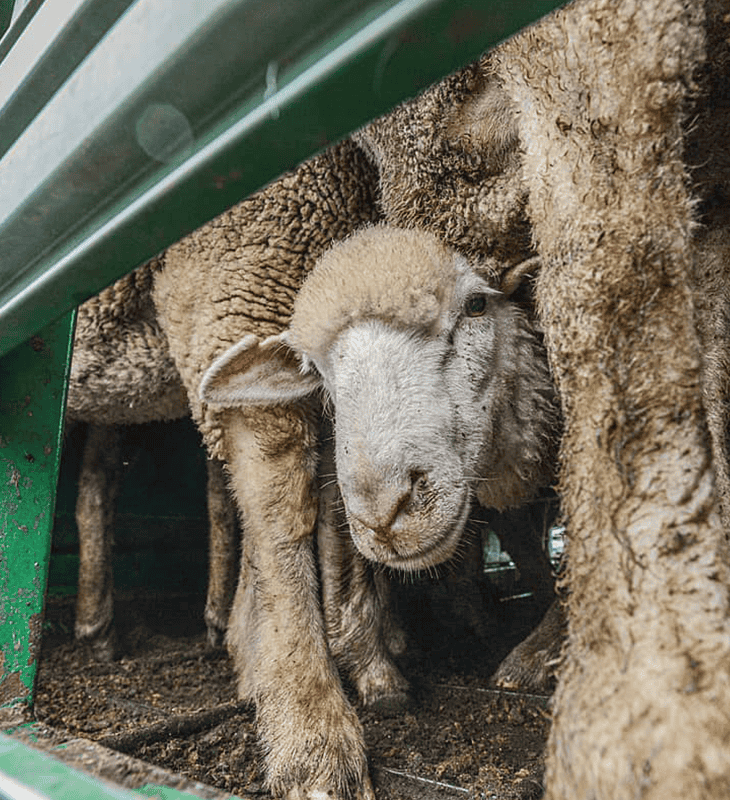
A sheep looks out as he / she is transported for slaughter
(Photo: Jo-Ann McArthur)
Exporting live animals is terrible for the environment and adds to the already high amounts of emissions associated with farming animals for food. As the report outlines, “the total emissions of the Australian live export industry was approximately 1.8 million tonnes of CO2 in 2009 alone, putting the industry among the top 40 emitters in Australia.”
PETA Australia reports, “Figures from the Department of Agriculture and Water Resources indicate that more than 2.5 million animals have died on live-export ships before reaching their destination…”
4. Food Security
“In 2022, global hunger affected between 691and 783 million people, an increase of 122 million from 2019 pre-pandemic levels.”
If the goal is to end world hunger, then continuing on the path of animal agriculture will not get us there. In fact, it’s enormously inefficient and actually jeopardizes food security and the UN
Sustainable Development Goals. “For every 100 calories fed to animals as cereals, just 17-30 calories enter the human food chain as meat.”
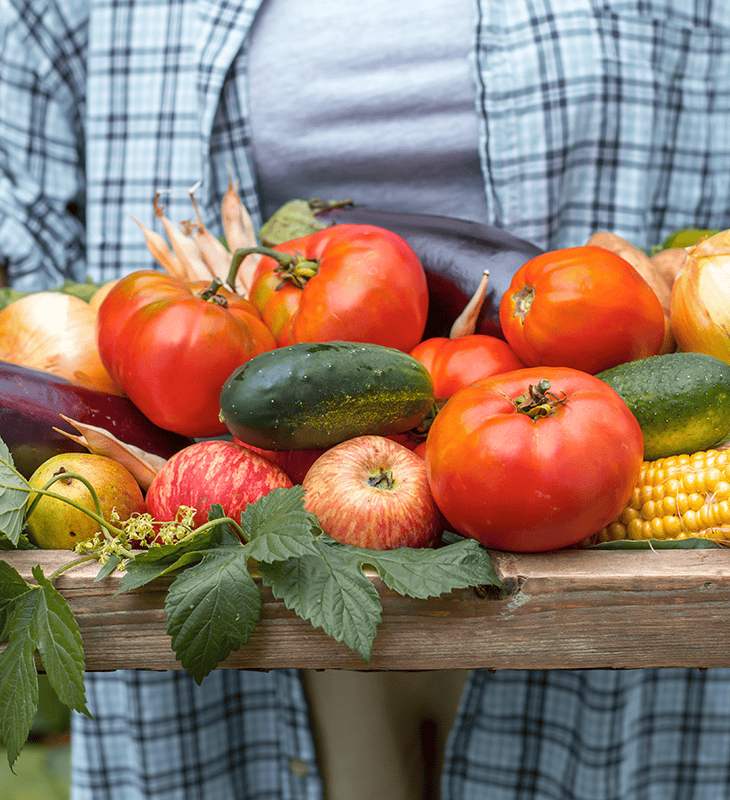
Switching to regenerative, diversified plant-based farming can lead to healthy soils and systems designed to feed nourishing food.
Half of the earth’s habitable land is being used for agriculture, and almost all of this is being used to raise animals for their milk and flesh. As Our World In Data explains, “If the world adopted a plant-based diet, we would reduce global agricultural land use from 4 billion to 1 billion hectares.”
The Safe and Just report suggests we move away from monoculture-based farming that degrades soil and implement a soil treaty that is restorative, regenerative, and sustainable to combat food security issues.
5. Education
Public education is key, and we can all help raise awareness about changes needed in food policy. When we educate others and help spread the word through communities, friends, and colleagues, political leaders are pressured to take action on critical issues to help the earth. The Plant Based Treaty constantly educates people about the climate emergency with information campaigns, workshops, seminars, reports, and demonstrations. They offer helpful campaign toolkits explaining how to lower your carbon footprint, write an elevator pitch or letter to the editor, and take the vegan pledge.
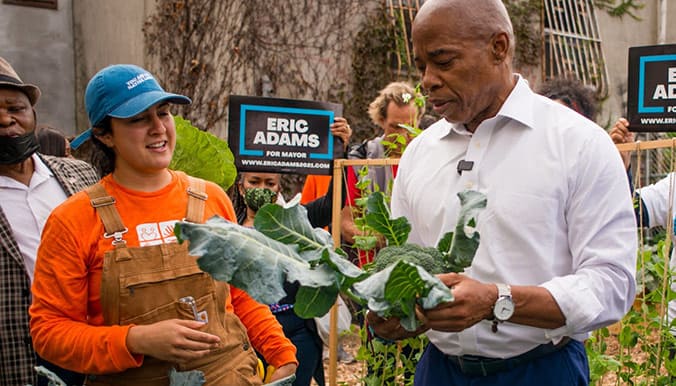
Some policymakers like Major Eric Adams are spearheading public education by example (Photographer/Mayoral Photography Office)
Some policymakers like New York City’s Mayor Eric Adams are spearheading public education and leading by example. Not only did Adams introduce Vegan Fridays to New York City, but he is also vocal about the importance of switching to a plant-based diet. The city launched a campaign called ‘Eat a Whole Lot More Plants’ with ads on television, radio, subways, digital channels, and using outdoor media in neighborhoods with health and socioeconomic inequities, all encouraging New Yorkers to eat more plant-based, whole foods.
6. Health
Many plant-based health professionals and endorsers of the Plant Based Treaty, including Dr. Michael Klaper and Dr. Neal Barnard, president of Physicians Committee for Responsible Medicine, recommended eating a whole foods, plant-based diet to reduce and help prevent diet-related chronic diseases.
“Switching to a plant-based food system would alleviate the global cascading crises of climate change, land-use change, human health, antibiotic resistance, and zoonotic disease.” – Safe and Just report

Many plant-based health professionals recommended eating a whole foods, plant-based diet to reduce and help prevent diet-related chronic diseases.
The biggest global users of antibiotics are farmed animals. They are used to prevent disease and infection from spreading among animals kept by the thousands in tiny, cramped, and filthy cages. A staggering 73 percent of antimicrobials sold globally in 2017 were for farmed animals, and this widespread use of antibiotics contributes to antibiotic resistance in humans.
Switching to eating more plant-based foods instead of animal products is better for everyone.
Stay tuned for six additional calls to action from the Plant Based Treaty’s vegan donut economics approach to the food system.


Miriam Porter is an award-winning writer who writes about veganism, social justice issues, and eco-travel. Miriam currently lives in Toronto with her son Noah and many rescued furry friends. She is a passionate animal rights activist and speaks up for those whose voices cannot be heard.
More from the blog
Kickstart Spring With A Nourishing Green Smoothie By Dr. Brooke Goldner
By Miriam Porter
From Global Advocacy To Menu Changes: Plant Based Treaty’s Goals For 2025
By Miriam Porter
Important Highlights From Plant Based Treaty in 2024
By Miriam Porter



